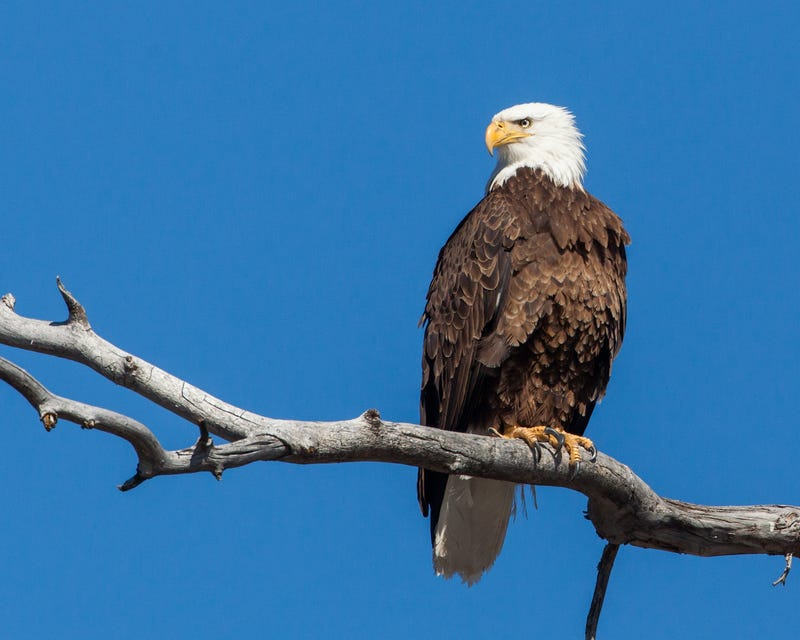
Three out of thirteen bald eagles have died after the birds were likely poisoned while rummaging through improperly disposed euthanized animals at a Minnesota landfill.
The remaining 10 birds are now in intensive care at the University of Minnesota Raptor Center. The executive director of the center, Victoria Hall, hopes the birds can recover and be returned to the wild.
"We have never seen that many eagles in one event here," she told KSTP.
The case started on Sunday, December 4th, when the Inver Grove Heights Police Department brought in a sick juvenile bald eagle that they had found in the snow. The Raptor Center's medical director found that it was highly likely that the bird was suffering from pentobarbital poisoning, the primary agent used in euthanasia solution.
"Eagles can get secondary poisoning if they scavenge on the body of an animal that was euthanized with the chemical," The Raptor Center wrote on Facebook.
The next day, another bird in similar condition was found in the same area near the landfill in Inver Grove Heights. Volunteers went out to rescue it and quickly found several birds showing similar symptoms.
"When our volunteer went out there, she found not one or two but nine different eagles that were in need of help, so our volunteers scavenged the area and got these nine eagles in for care," Hall told KSTP.
The following day, US Fish and Wildlife found one more eagle, bringing the total number of eagles to 11.
"The suspicion that these birds were suffering from pentobarbital poisoning was further heightened when it was confirmed that carcasses of animals that had been euthanized with chemicals were brought to the landfill on Friday and could have been scavenged on by eagles," The Raptor Center said.
Three of the 11 eagles transported to The Raptor Center also had lead poisoning. One eagle, which was also infected with avian influenza, did not survive. Two others were discovered dead near the landfill.
State and federal agencies are investigating the incident, and US Fish and Wildlife obtained all samples collected by The Raptor Center for toxicology testing.
"This heartbreaking incident is yet another example of how critical it is for humans to be mindful of what we are putting into the environment," The Raptor Center said. "We are all connected, and sometimes our actions can have unintended and devastating consequences."
Once state and federal wildlife officials discover who is responsible for the improper disposal of the euthanized animals, charges may be possible.
A fund established to help cover the cost of the birds' care has raised over $11,000.


